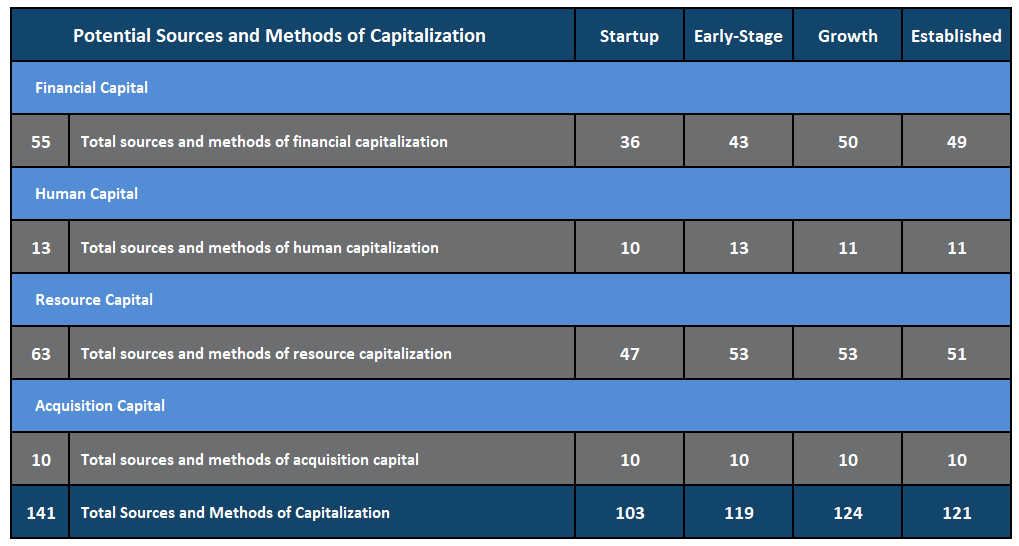Capitalization is a concept used in both accounting and finance, with significant implications for businesses of all sizes. Whether you’re a small business owner, startup founder, or finance student, understanding what capitalization in business entails is essential for making informed decisions about financial management and long-term strategy. This article unpacks the concept of capitalization, detailing its meaning, applications, and relevance in various business contexts.
Defining Capitalization in Business
At its core, capitalization refers to how a business manages and records costs, assets, and financial structures. While the term can vary slightly between accounting and finance, its fundamental purpose remains the same—to allocate resources efficiently and structure financial activities to support growth and sustainability.
Capitalization can broadly be understood in two contexts:
- Accounting Definition:
Capitalization in accounting involves recording expenses as assets on the balance sheet rather than immediately recognizing them as costs in the income statement. This method applies to fixed assets with long-term value, such as equipment, vehicles, or real estate. By spreading the expense across the asset’s useful life through processes like depreciation or amortization, companies achieve a more accurate representation of their financial health over time.
- Finance Definition:
Capitalization in finance refers to the total value of a company’s financial structure, comprising long-term debt, equity (stocks), and retained earnings. This is also often referred to as a company’s capital structure. Businesses evaluate capitalization to measure overall value and sustainability, typically expressed as market capitalization (the total market value of a company’s outstanding shares).
How Capitalization Works in Accounting
To illustrate how capitalization functions in accounting, imagine a small business purchasing a $50,000 delivery truck. Instead of recording the entire amount as an expense in the same period, the business capitalizes the cost, treating it as a long-term asset. Through depreciation, smaller portions of the cost are deducted over multiple accounting periods (for example, 10 years). This approach aligns the expense with the truck’s economic value during its lifespan, improving cash flow and minimizing sudden fluctuations in reported profit.
Capitalized Costs vs. Expenses
A critical distinction in capitalization is between capitalized costs and expenses:
- Expenses are immediate, short-term operating costs like rent, office supplies, or utilities. These are deducted in the accounting period in which they are incurred.
- Capitalized Costs are associated with long-term benefits, such as purchasing equipment, real estate, or software development costs. These costs are recorded as assets and deducted incrementally over time.
The Importance of Capitalization in Finance
From a financial perspective, capitalization gauges a company’s value and stability. It reflects factors such as:
- Debt-to-Equity Ratio: This measures how much of a company’s operations are funded by debt versus equity, helping assess financial risk.
- Market Capitalization: Determined by multiplying the company’s share price by the total number of shares outstanding. A large-cap company might be considered stable, while a small-cap may be viewed as having high growth potential (though greater risk).
Understanding financial capitalization allows businesses to optimize performance, attract investors, and secure loans more effectively.
Applications of Capitalization in Business
Capitalization has practical implications across different aspects of business operations. Below are several key areas where capitalization plays a vital role:
1. Strategic Financial Planning
Capitalization enables businesses to spread costs over time, facilitating smarter financial management. For instance, capitalizing on fixed assets reduces immediate expenses and stabilizes cash flow.
2. Securing Loans and Investments
Capitalization directly impacts a company’s balance sheet and financial ratios. For example, by spreading the cost of expensive assets over several years, businesses can maintain favorable debt-to-equity or profit margins, making them more appealing to lenders and investors.
3. Tax Advantages
Capitalization often provides businesses with opportunities for tax benefits. Depreciation expenses can sometimes lead to smaller taxable income, reducing a business’s tax burden.
4. Valuation for Mergers or Acquisitions
A company’s capitalization reflects its overall financial strength and future earning potential, making it a critical consideration during mergers, acquisitions, and partnerships.
5. Compliance with Accounting Standards
Capitalization ensures compliance with generally accepted accounting principles (GAAP) or international financial reporting standards (IFRS), providing accurate and reliable financial statements.
Benefits of Capitalization
Capitalizing assets offers multiple advantages for businesses, such as:
- Better Cash Flow Management:
Spreading costs over time avoids significant spikes in expenses, giving businesses better control over their cash flow.
- Improved Financial Ratios:
Capitalized costs are reflected as assets, not liabilities, which can enhance a company’s balance sheet, debt-to-equity ratio, and net worth.
- Long-Term Planning:
Capitalization aligns expenses with the long-term value of assets, creating a more realistic financial outlook.
Risks and Limitations of Capitalization
Despite its benefits, capitalization also poses some risks and limitations:
- Complexity:
Proper capitalization requires careful documentation, adherence to accounting standards, and knowledgeable financial management.
- Risk of Manipulation:
Some businesses may incorrectly capitalize expenses to artificially inflate profits, leading to inaccurate financial reporting.
- Regulatory Compliance:
Failure to follow required guidelines for capitalizing expenses can result in penalties or legal consequences.
Key Takeaways for Small Businesses and Startups
For small business owners and startup founders, effective capitalization practices can be a game-changer:
- Start by understanding which costs should be capitalized, such as office equipment, software licenses, or development costs.
- Consult with experienced accountants or financial advisors to ensure compliance with accounting regulations.
- Monitor how capitalization impacts your key financial metrics, including profitability and cash flow.
Final Thoughts
Capitalization in business is a vital concept encompassing accounting strategies and financial structures. By understanding and implementing capitalization effectively, small businesses and startups can optimize their financial management, unlock growth opportunities, and maintain long-term stability.
If you’re a small business owner, now is the time to evaluate your capitalization practices and ensure they align with your financial goals. For startups, mastering this concept early can set a foundation for sustainable growth.
Understanding “what is capitalization in business” is the first step toward smarter decision-making and a well-rounded strategy for success.








